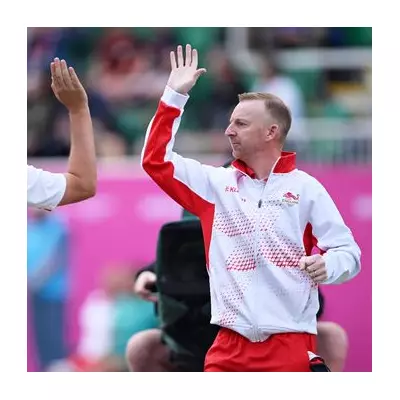
Baseball's most electrifying superstar, Shohei Ohtani, finds his World Series ambitions caught in an unprecedented scheduling storm that threatens to rewrite MLB's postseason playbook. The Los Angeles Dodgers' $700 million man faces the prospect of his championship dreams clashing with television broadcasting constraints in what could become one of the most dramatic scheduling crises in recent baseball history.
The Extra-Time Conundrum
Major League Baseball's carefully constructed postseason calendar is facing potential collapse due to the introduction of extra-time provisions for tied games. This revolutionary change, designed to eliminate marathon contests stretching deep into the night, now threatens to create a domino effect that could see critical World Series games overlapping with regular season fixtures.
For Ohtani and the Dodgers, the implications are staggering. The Japanese phenom, who has captivated baseball fans worldwide with his two-way prowess, could see his path to World Series glory complicated by scheduling conflicts that would force MLB to make impossible choices between regular season obligations and postseason drama.
Broadcaster Blues
The situation becomes particularly thorny when considering television rights and broadcasting agreements. Major networks have invested billions in securing exclusive windows for both regular season and postseason coverage. The potential overlap creates a nightmare scenario for schedulers and broadcast partners alike, with millions of viewers potentially forced to choose between watching Ohtani's regular season heroics or critical playoff baseball.
"This is uncharted territory for everyone involved," sources close to the negotiations revealed. "We're looking at scenarios where Shohei could be playing a meaningful regular season game while the World Series is happening simultaneously. It's a broadcaster's worst nightmare."
Ohtani's Championship Quest
For Ohtani himself, the scheduling chaos represents another obstacle in his quest for baseball's ultimate prize. After moving to the Dodgers in one of the most lucrative deals in sports history, the pressure to deliver a championship to Los Angeles has never been greater. The two-time MVP has been vocal about his World Series ambitions, making any potential scheduling conflict more than just an inconvenience—it could fundamentally alter his legacy.
The Dodgers organization remains cautiously optimistic about navigating the potential scheduling minefield. Team officials have been in constant communication with MLB headquarters, working to find solutions that protect both their substantial investment in Ohtani and the integrity of the postseason.
What Comes Next?
MLB executives face a race against time to develop contingency plans that satisfy multiple stakeholders:
- Creating flexible scheduling windows for potential overlap scenarios
- Negotiating with broadcast partners about alternative coverage options
- Developing clear protocols for prioritizing games when conflicts arise
- Ensuring competitive fairness for all teams involved
As baseball prepares for what could be its most complex scheduling challenge in decades, all eyes remain on Ohtani and his pursuit of World Series glory. The resolution of this unprecedented situation could set new precedents for how America's pastime handles the increasing complexities of modern sports scheduling.





